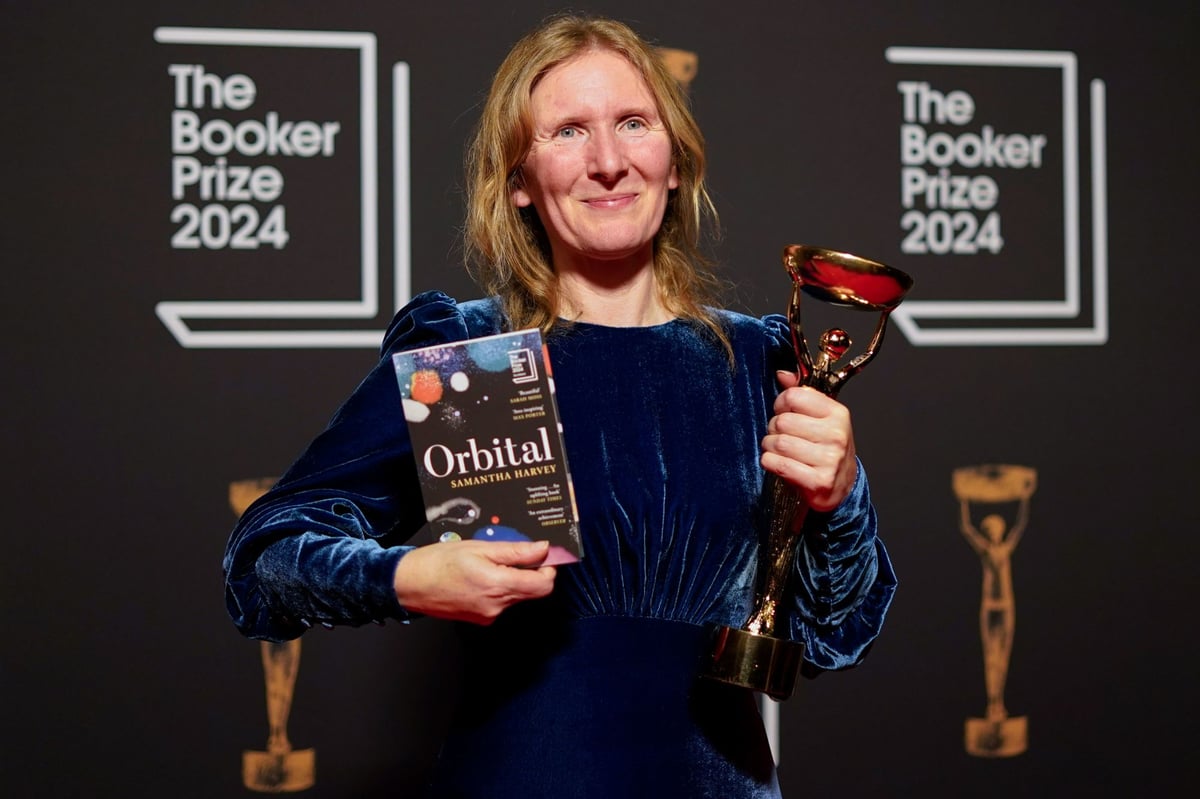The literary canvas of 2024 will be etched with two names: Han Kang and Samantha Harvey. Both are women. Han Kang won the Nobel Prize in literature and Harvey, the Booker Prize. Critic Gaby Wood hailed Harvey as this generation’s Virginia Woolf. Her latest fiction, Orbital, has won the Booker. She convenes a breathtaking experience of six astronauts in space. Each page of the novel limns the fragility of human life and the beauty of the earth, which fill the conversations of the astronauts. Being far away from the earth, they feel more sensitive towards the blue planet and question themselves how this sphere will be without life. They bob about in the spacecraft and look out at the serene Earth.
From over 250 miles above the Earth, Japan appears like a ringlet and the Philippines like a thread. The entire Europe is delineated with precision. The roads are circled by a golden string of lights. But what spellbinds them is the earth that looks like a bejewelled egg. The astronauts meditate on this planet, its elegance, and the aspirations of its habitants. Harvey sets out on a crazy flight on an imagined spacecraft, International Space Station, with an imaginary crew.
Through their eyes, she looks at the Earth in awe: “The earth, from here, is like heaven. It flows with colour. A burst of hopeful colour.” She has artistically structured Orbital by connecting its chapters to 16 sunrises and an equal number of sunsets of the Earth. Each chapter is about a single orbit of the Earth, which takes 90 minutes. It occurs over one day. Yet, in space, time is different. In space, “the whipcrack of morning arrives every ninety minutes” and the sun is “up-down-up-down like a mech.cal toy.” Reading the book is an elliptical journey where the thin line between the idea and the reality gets blurred. The six characters of the book are Roman, Anton, Chie, Pietro, Shaun and Nell. A Russian cosmonaut, Roman, has been in space for 434 days. A master of space travel, Roman is commanding the spaceship.
Anton, also a Russian cosmonaut, speaks less, but is very emotional. A Japanese cosmonaut, Chie, is wise and works methodically. On the other hand, Pietro is the heart and soul of the spacecraft. Shaun, an American, thinks the universe has resulted from a design. If Shaun and Pietro are the heart and soul of the spacecraft, Nell, a British, is its breath. Her other novel, The Western Wind published in 2018, is a detective story set in medieval England. Its plot is written in the backdrop of Oakham, an imaginary village of 15th century England. She unveils the mental state of its inhabitants who live in a bend of the river, isolated, waiting for a bridge to overwhelm the chasm with the outside world.
Fearlessness is ingrained in Harvey. It is evident in her previous novel, The Wilderness in which she portrays a man, Jack, with Alzheimer’s. It is a disease more dangerous than cancer or heart ailments. When one suffers from it, the words he has learnt turn into smoke and faces of the people dear to him into cinders. Only then one can understand what Alzheimer’s actually is. Each of her books is a work of style, which is a little rugged, though. She has rightly been hailed as this generation’s Virginia Woolf.
One who has read The Waves of Woolf can appreciate this comment. The novel, which, too, has six characters, sketches everything – people, objects and the surroundings – as a single chord of life, though they are individually different. In one of her letters, Woolf mentioned: The six characters are supposed to be one. I did mean that in some way we are the same person, and not separate people.” Similarly, Harvey’s six astronauts are different from each other in all respects, but they are one, a symphonic composition. Arup Chakraborty

